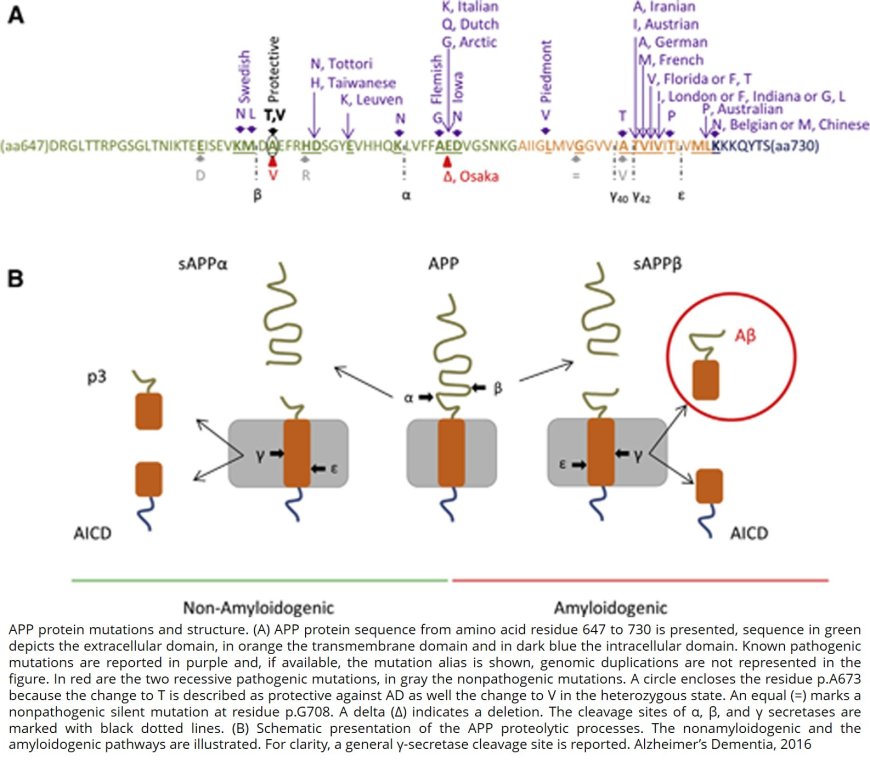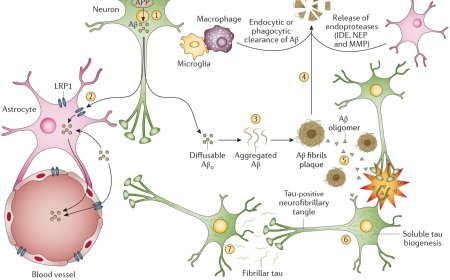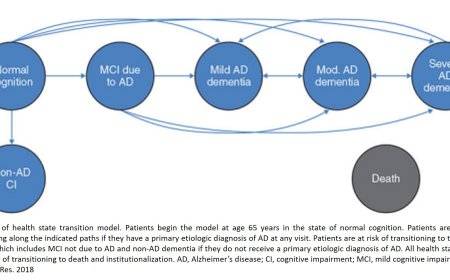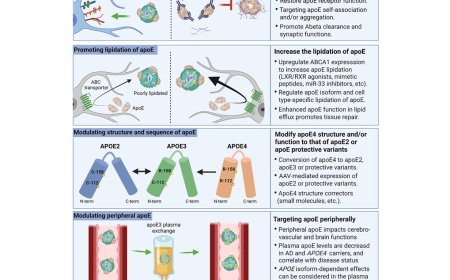Genetics of Alzheimer’s disease

The genetics of Alzheimer's disease are complex and multifactorial. While there is no single "Alzheimer's gene," several genes have been identified that contribute to the risk of developing the disease.
Types of Genetic Risk
1. Early-Onset Familial Alzheimer's Disease (EOFAD): Caused by rare mutations in the APP, PSEN1, or PSEN2 genes. These mutations lead to the production of abnormal proteins that cause the disease.
2. Late-Onset Alzheimer's Disease (LOAD): The most common form of the disease, accounting for 95% of cases. While there is no single genetic cause, several genes contribute to the risk, including APOE, ABCA7, and BIN1.
Key Genes Associated with Alzheimer's Disease
1. APOE: The APOE gene provides instructions for making a protein called apolipoprotein E. The APOE ε4 allele is the strongest genetic risk factor for late-onset Alzheimer's disease.
2. APP: The APP gene provides instructions for making a protein called amyloid precursor protein. Mutations in the APP gene can cause early-onset familial Alzheimer's disease.
3. PSEN1: The PSEN1 gene provides instructions for making a protein called presenilin 1. Mutations in the PSEN1 gene can cause early-onset familial Alzheimer's disease.
4. PSEN2: The PSEN2 gene provides instructions for making a protein called presenilin 2. Mutations in the PSEN2 gene can cause early-onset familial Alzheimer's disease.
5. TREM2: The TREM2 gene provides instructions for making a protein called triggering receptor expressed on myeloid cells 2. Variants of the TREM2 gene have been associated with an increased risk of late-onset Alzheimer's disease.
Genetic Testing
Genetic testing for Alzheimer's disease is available, but it is not recommended for most people. Testing is typically reserved for individuals with a family history of early-onset familial Alzheimer's disease or those who are participating in clinical trials.
Implications of Genetic Research
Understanding the genetics of Alzheimer's disease has important implications for:
1. Risk assessment: Identifying genetic risk factors can help individuals understand their risk of developing the disease.
2. Early diagnosis: Genetic testing can help diagnose early-onset familial Alzheimer's disease.
3. Targeted therapies: Genetic research can inform the development of targeted therapies aimed at specific molecular mechanisms underlying the disease.
4. Prevention strategies: Understanding the genetics of Alzheimer's disease can help identify potential prevention strategies, such as lifestyle modifications or pharmacological interventions.
https://www.sciencedirect.com/science/article/pii/S0959438819301357
https://sciencemission.com/Genetics-of-Alzheimer%E2%80%99s-disease













